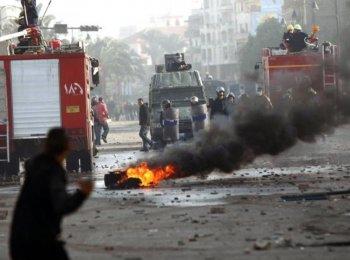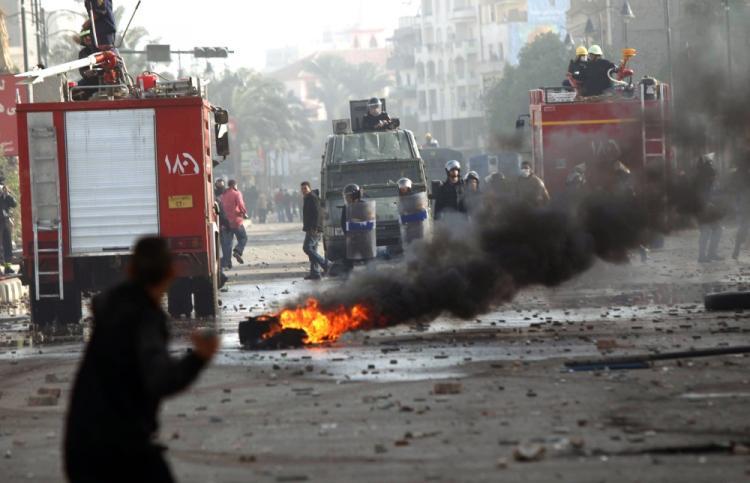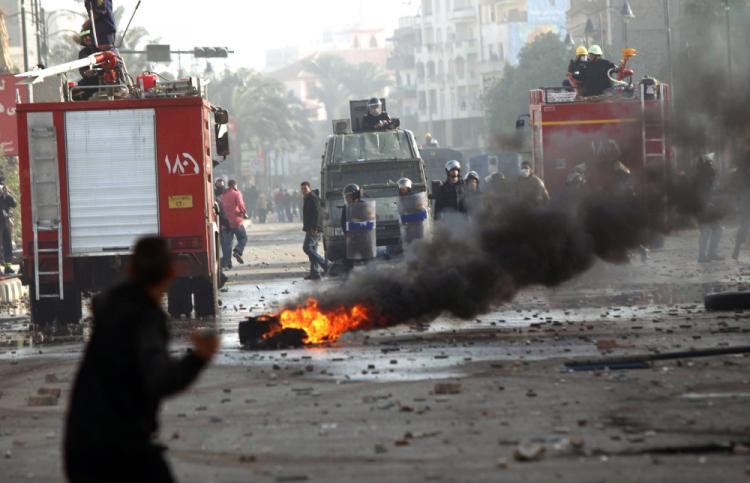With word of Egypt’s protests spreading across the country—largely via Twitter, Facebook, and SMS—by Thursday night local time, all of those electronic channels went silent.
Twitter, Facebook, and SMS have been interrupted intermittently since the mass protests began on Tuesday. Still, messages from ad hoc organizers calling for larger demonstrations were getting through, via Internet users with proxy servers that allowed them to circumvent the digital walls.
By the evening of Jan. 27, however, Facebook, and SMS were no longer accessible, and at roughly midnight, the entire Internet suddenly went dead.
News from within Egypt was still reaching Twitter updates even after the Internet was shut down, however. Many dissident groups in the Arab world use servers or websites based in other countries in order to protect them from being shut down by repressive governments.
Tweets emerging since the cyber clamp down are showing signs of increasing alarm. A Twitter user called marmite_news wrote: “CALL ON THE WORLD TO DEMAND PHARAOH RELEASE HIS PEOPLE: INTERNET & SMS SHUT DOWN BY MUBARAK”
Sultan Al Qassemi, a columnist for United Arab Emirates English newspaper The National tweeted: “Not even Iran shut down the entire Internet completely during the protests.” And “If the Egyptian govt really did shut down the entire Internet, Lock, Stock, and Barrel it may be the first country ever to do so.”
A tweet from the Egypt discussion thread read: “Internet is COMPLETELY SHUTDOWN everywhere for them, govt is planning a massacre.”
TrellaLB: “got a FAX from a lebanese friend in Cairo saying his satellite phone is not working! how can they stop satellite phones !!”
At a press briefing in Washington on Thursday, State Department spokesman Philip Crowley extended support to the activists.
“[W]e want to see Egyptian authorities allow and enable those protests to occur peacefully. We’ve also made clear that we want to make sure that there’s no interference with the opportunity for the Egyptian people to use social media.”
In the Hands of Egyptian Youth
The protesters consist mainly of young Egyptians swarming the streets in Cairo, Suez, and Alexandria in an unprecedented display of anti-government sentiment. There is no identifiable opposition group, nor is there a unified voice in their demands. Some are calling for reform, others are calling for President Hosni Mubarak to join recently ousted Tunisian president Zine El Abidine Ben Ali in exile.
While the communications were still up and running, word was being spread of a call for mass, nationwide protests on Jan. 28 after midday prayers—which may well have prompted the Internet blackout.
Some activists are also hoping to use the revolutionary moment to ease sectarian tensions in Egypt and build solidarity between Muslims and the Christian minority.
A movement that was gaining momentum on Twitter was a declaration by Egyptian Christians to protect Muslims during their Friday prayers.
The Christian minority in Egypt is often subject to violence and discrimination. On New Year’s Day this year a bomb at a church in Alexandria killed 23 worshippers and wounded dozens of others. Violence then broke out between hundreds of Copts, Muslims, and police. Copts say the government failed to protect them despite threats of violence from a militant group in Iraq that includes al-Qaeda.
With reporting by Laila Hassan in Cairo.







